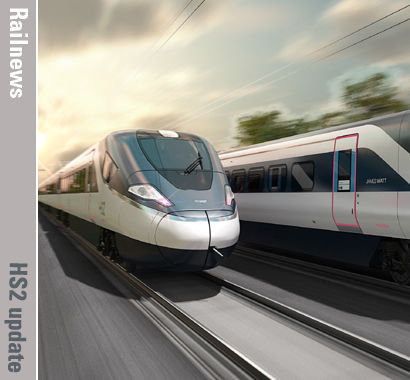CLAIMS that the final cost of HS2 could be £170 billion have been dismissed by the government.
Lord (Tony) Berkeley, who is a veteran critic of the scheme to build high speed lines between London, Birmingham, Manchester and Leeds has warned that the eventual price could be almost three times as much as the original estimates, and that Phase 1 between London and Birmingham, now under construction, could cost five times as much.
Supported by surveyor and engineer Michael Byng, Lord Berkeley had said: ‘One saving would be to cancel or cut down the scope and cost of HS2. A fraction of this amount spent on railways in the North and Midlands would bring jobs and benefits much more quickly.
‘Michael Byng’s latest estimate (October 2020) of costs for Phase 1 are £74 billion and for Phase 2A £14 billion at second quarter 2020 prices. So you will be able to get from London to Birmingham and Crewe a few minutes quicker for £88 billion. These cost increases have come about due to more information being available about these parts of the project, as well as inflation. Michael Byng’s methodology has never been challenged by HS2.’
However, the calculations have been rejected by the Department for Transport, which said: ‘We do not recognise these baseless, false figures. Just last month we provided an update to Parliament on the costs of the project and confirmed that it would be delivered within the funding envelope.
‘Earlier this year, we comprehensively reset the HS2 programme, introducing a revised budget and funding regime, and pledged that we would be relentlessly focused on controlling costs – this has not changed.
‘Construction of HS2 is already underway, and once built, it will become the spine of the country’s transport network, bringing our biggest cities closer together, boosting productivity and rebalancing opportunity fairly across the country.’
Lord Berkeley served as deputy chairman of the official Oakervee Review into the scheme, but he and most of his colleagues were told to step down before any of its conclusions had been published. He is also opposed to taking HS2 into Euston, saying that a terminus at Old Oak Common would be a cheaper alternative.
Meanwhile, HS2 minister Andrew Stephenson revealed in October that the spending on Phase 1 has reached almost £10 billion – a quarter of the budget for this section. Lord Berkeley commented: ‘On most major projects, a rule of thumb is that costs incurred before permanent works are started rarely [exceed] 10 per cent of the total cost.’
He added: ‘Rail passenger ridership is running at around 40 per cent compared to the previous year. We must surely consider whether, even in the medium term, ridership will ever return to the level seen recently, coupled with the growth forecasts which were used to justify the construction of HS2.
‘The HS2 gravy train goes on; whereas DfT ministers try to cut back or delay expenditure on other new rail projects, including those most needed in the Midlands and North, nobody seems to care about the still escalating costs of HS2, the ongoing environmental destruction and whether the demand is still there and of course whether the country can afford such a vanity project.’


